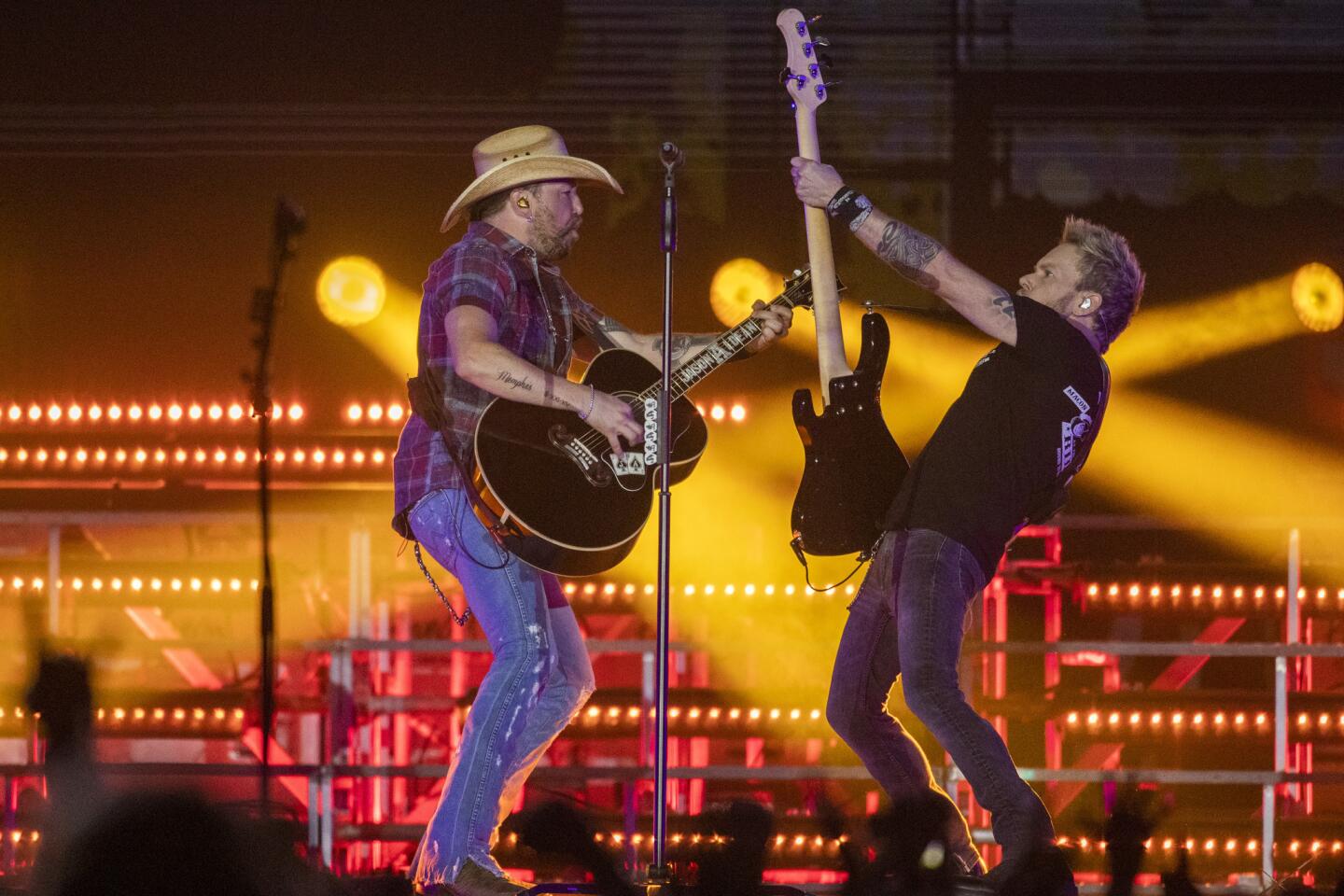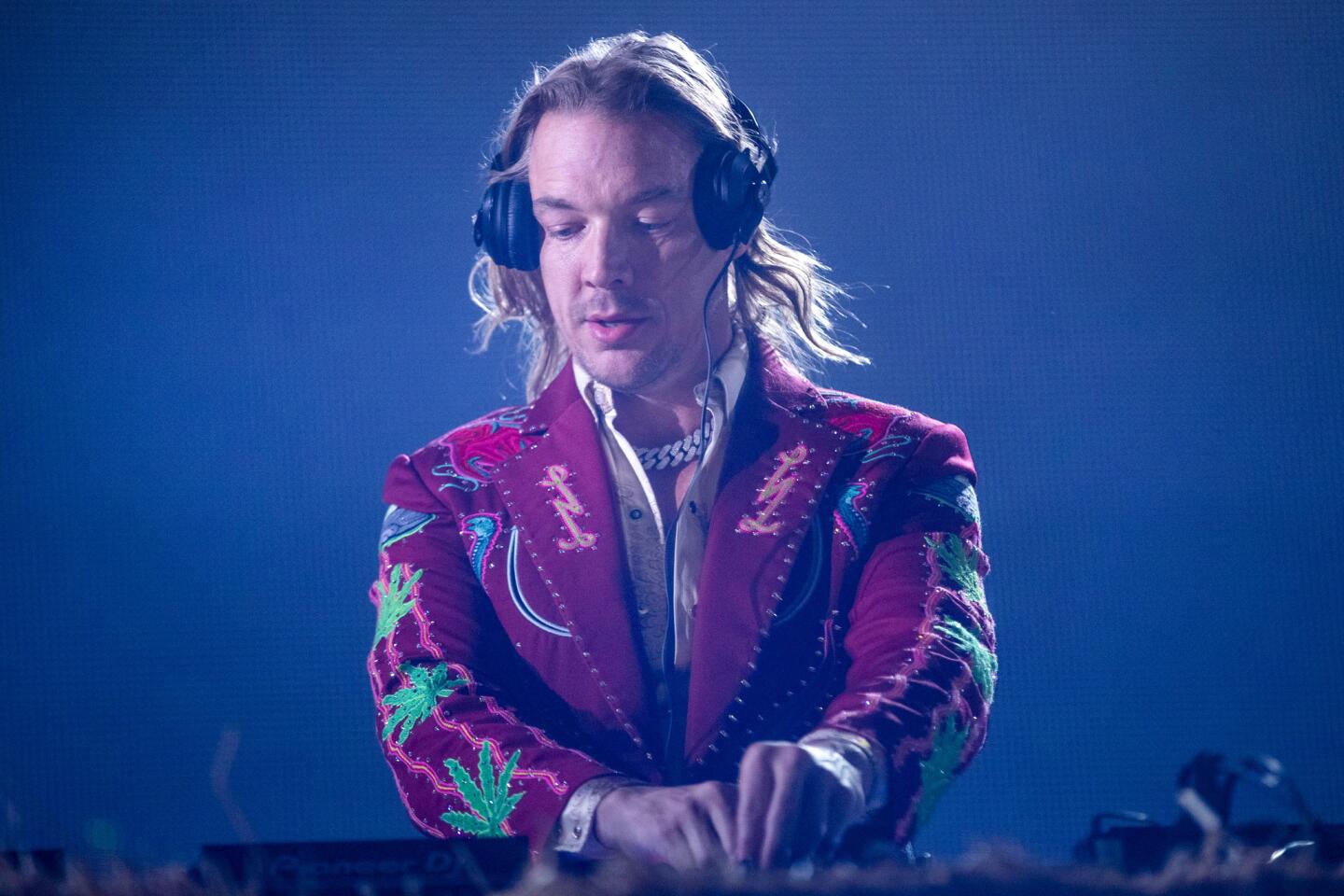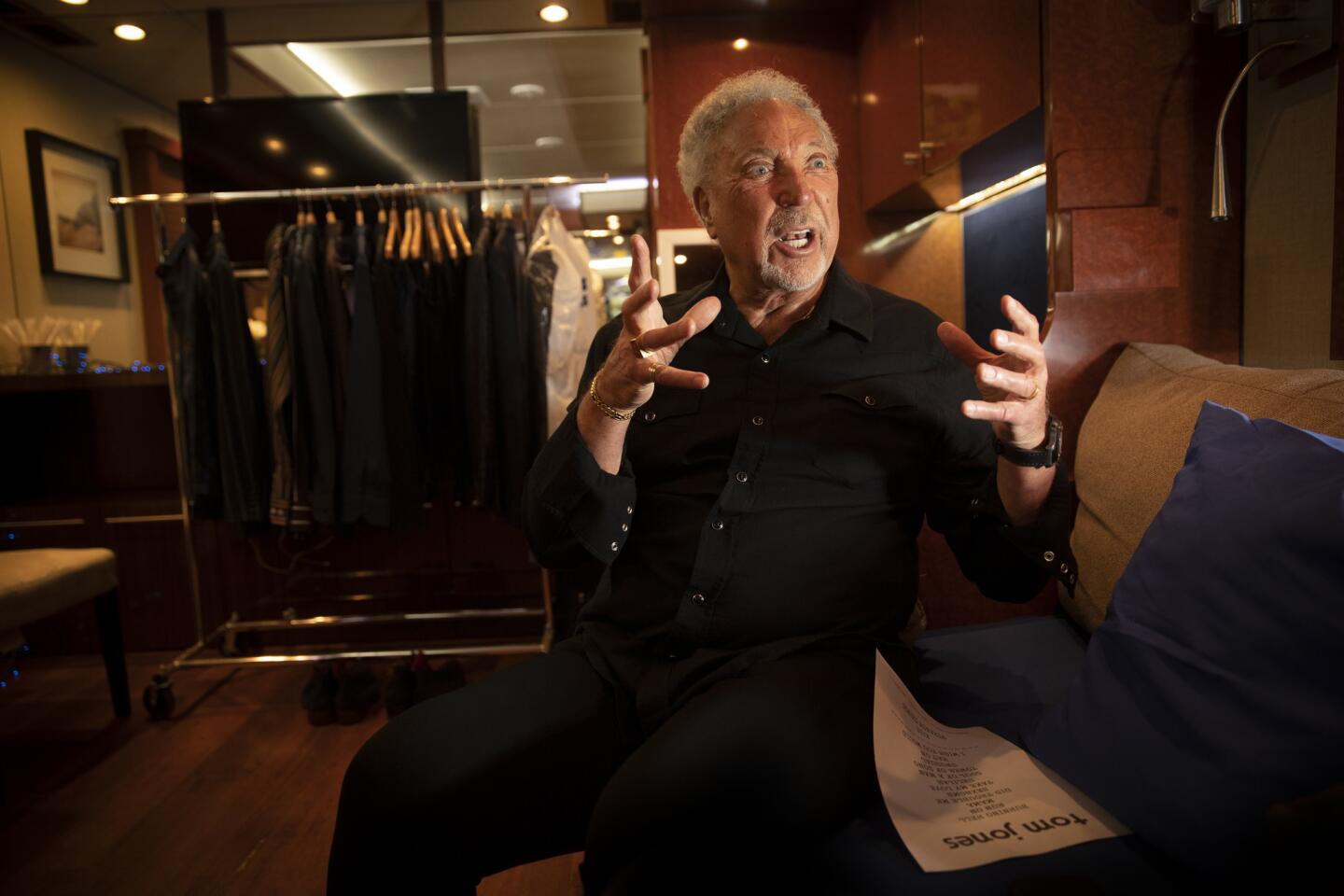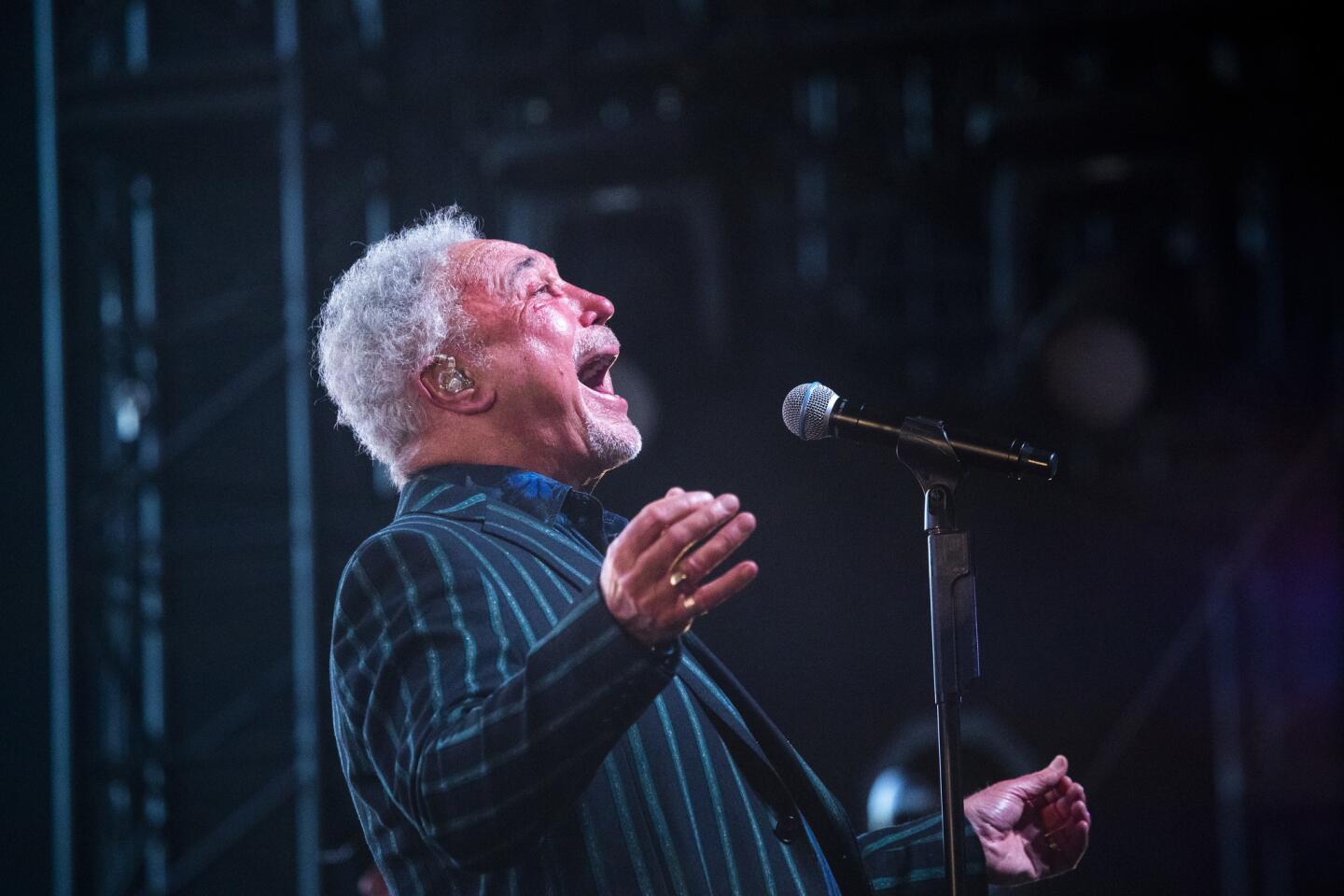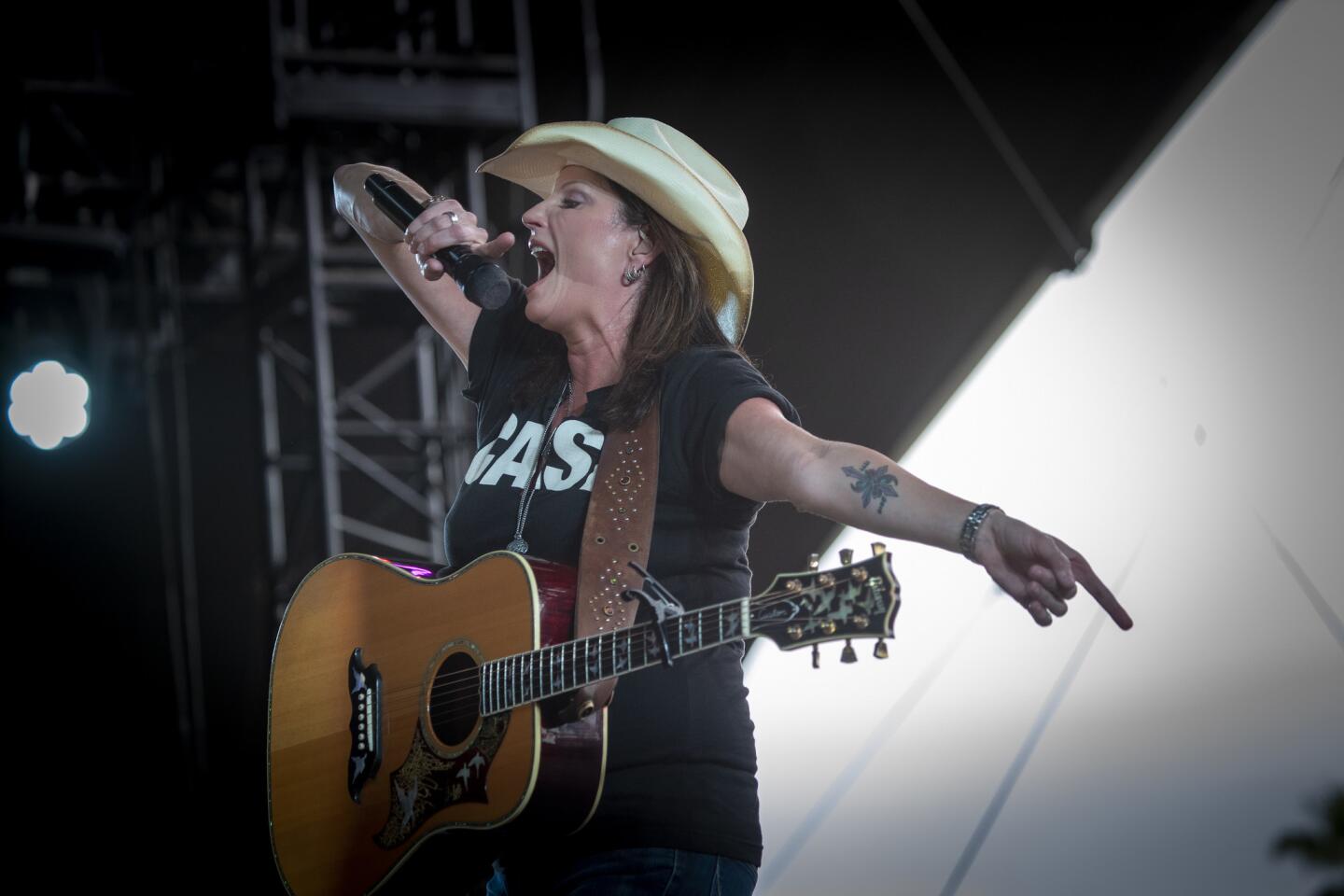Tom Jones, mourning ‘lost love,’ turns to country at Stagecoach
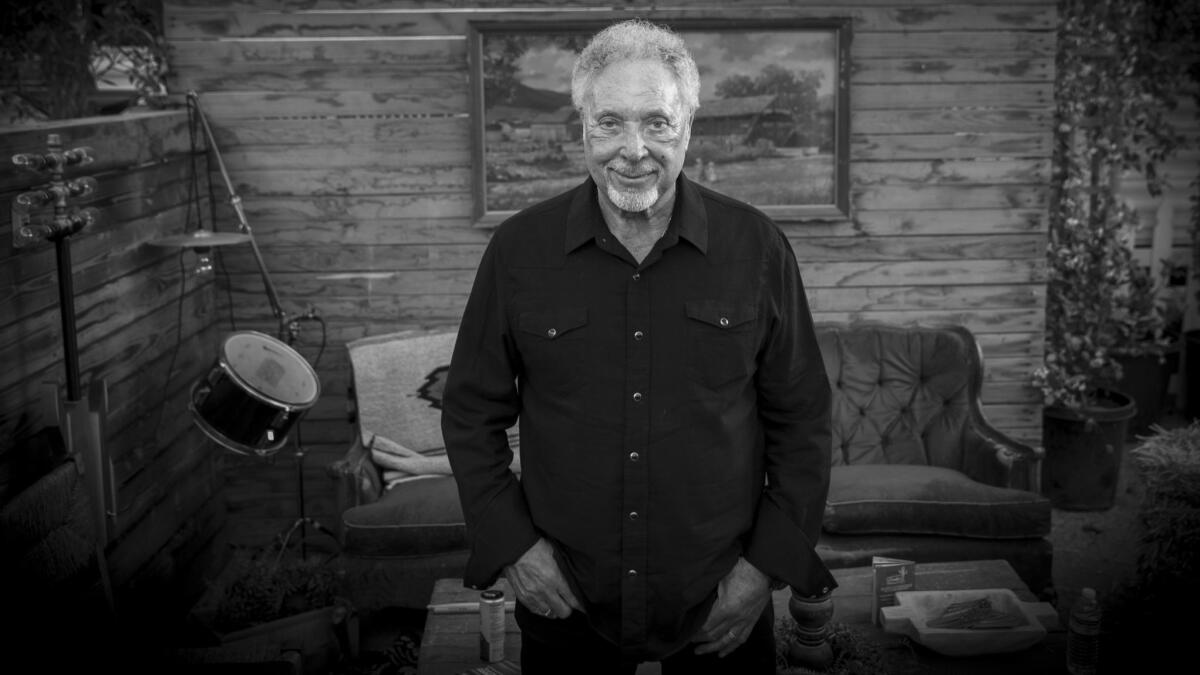
Tom Jones wasted not one second on trivialities when he stepped onstage Sunday night to make his debut at the Stagecoach country music festival in Indio.
The 78-year-old Welsh singer and longtime pop star paid no notice when one overenthusiastic fan tossed a pair of undies on stage at him, harking back to his fabled days as one of the reigning sex symbols of Las Vegas showrooms. He has deeper matters on his mind and in his music these days.
He dived straight into John Lee Hooker’s stark “Burning Hell,” which wrestles with the existential question “Maybe there ain’t no heaven/ Maybe there ain’t no hell …When I die, where will I go?/ Somebody tell me please.”
That plea grew in intensity as Jones and his band repeated the refrain ever more powerfully. A few thousand fans spilling out of the Palomino tent heartily embraced his exploration drawn largely from the trio of albums he’s released in the last decade: “Praise and Blame,” “Spirit in the Room” and “Long Lost Suitcase.”
Those efforts, with producer Ethan Johns, have provided Jones a welcome and richly rewarding return to his roots in blues, gospel, soul, R&B and, yes, country music. Hence his booking at Stagecoach, where he brought along the gritty and muscular band that’s been backing his live appearances in recent years. Anybody expecting the Tom Jones of his finger-snapping Flamingo Hotel days was in for a bracing surprise.

Like many musicians from the U.K. and Ireland who emerged in the ’60s, Jones was deeply influenced by American roots music. Most of the attention surrounding those influences has focused on the blues, soul and R&B contributions of African American artists, but country music also has been a foundational element for Jones throughout his life.
“They’re story songs,” Jones said, relaxing in his trailer backstage about an hour before his performance. “I’m dyslexic, so when I learn songs, once I get the words, once I’ve read them, I don’t see the written word anymore, I only see what it represents. The country songs are perfect because they tell a story.”
In fact, one of Jones’ earliest hits, after his breakthrough with the one-two punch in 1965 of “It’s Not Unusual” and “What’s New Pussycat,” was his version of the country standard “Green, Green Grass of Home.” The Curly Putman Jr. song was a hit in the U.S. in 1965 by Porter Wagoner, but Jones learned it through the recording by one of his biggest heroes, ’50s rocker Jerry Lee Lewis, whom Jones trekked to Indio to see when Lewis played Stagecoach in 2017.
“Country music is about life,” he said. “About nine times out of 10, it’s about working-class life and loss. Lost love.”
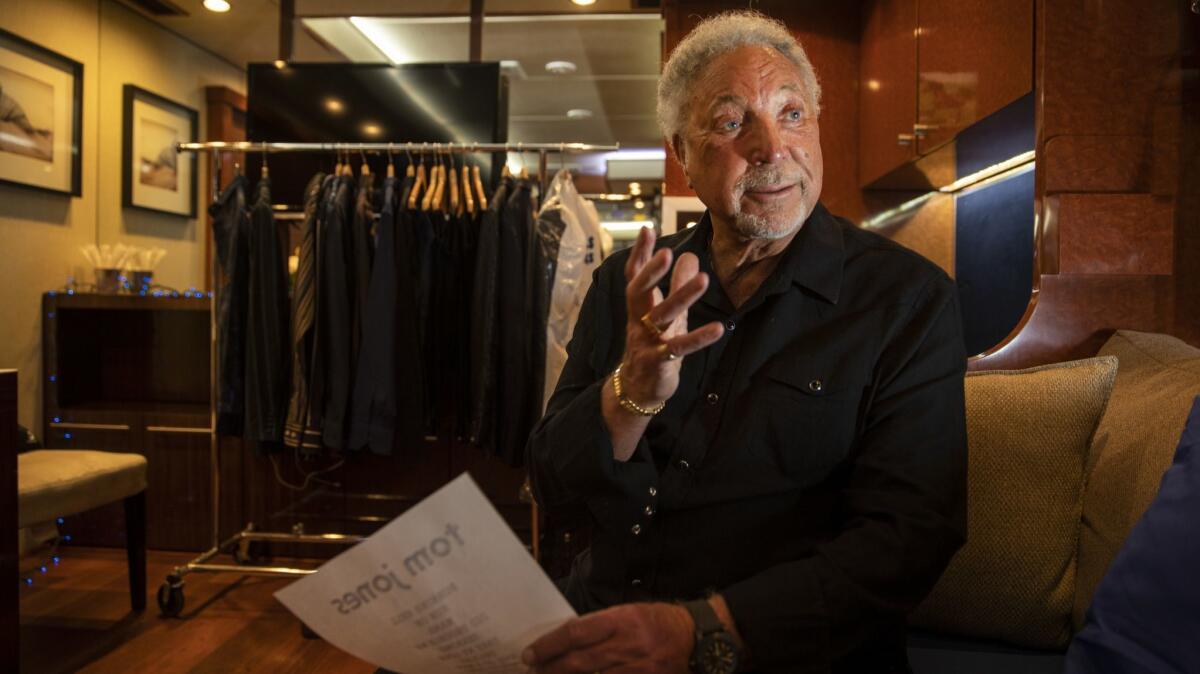
Loss is still close to the surface of Jones’ life three years after his wife of 59 years, Linda, died of lung cancer at 75.
In the immediate aftermath of her death, Jones said he didn’t know if he could continue performing.
“We knew about two weeks before she went that she was terminal,” he said. “I told her, ‘I don’t think I’ll be able to do it any more.’ But she wanted me to. She said ‘You have to do it. What else are you going to do?’ And I said, ‘I don’t know, maybe roll up in a corner and die?’
“She said, ‘No, you don’t want to do that. You’ve got to do it for me. Why do you think I married you in the first place?’ ” he recalled with a chuckle.
He slowly began embracing the idea of returning to music but soon encountered a hurdle: “When you get emotional, the throat closes up. I went to this therapist in L.A., and she said, ‘You know you’re going to need to get singing again.’ I said there were certain songs I don’t think I could do now, and she said ‘Like what?’ There’s a Bob Dylan song called ‘What Good Am I?’
“I always felt when my wife passed away, what could I have done? Did I let her down by not forcing her to go to the doctors because she had lung cancer?” Jones said. “That song says it all: ‘What good am I if I’m like all the rest? If I just turn away when I see how you’re dressed? When I shut myself off so I can’t hear you cry — What good am I.’ I said, ‘I don’t know whether I can still do that.’ She said, ‘That’s the first one you’ve got to do.’ ”
Since resuming performing, Jones said he has found strength and solace in music, but for a long time hasn’t felt the urge to set foot in a recording studio again. Lately, however, he’s starting to think along that line and hopes to resume the work he’d been doing with producer Johns.
He’s also kept busy with his role as a coach on the U.K. version of “The Voice,” part of a celebrity musician panel that also includes the Black Eyed Peas’ Will.I.Am and Jennifer Hudson.
“It’s all positive stuff, because you’re helping people,” he said. “You’ve got to give them hope. I always say the same thing: You’ve got to listen to other people, listen to their phrasing and the way they do things, but don’t copy it note for note. Then it’s just a cover version and you don’t want to do that.
“That’s what I always tried to do, like on ‘Green, Green Grass of Home,’ ” he said. “It’s not like Jerry Lee’s version. The essence of it is there, but that’s all.”
Follow @RandyLewis2 on Twitter.com
For Classic Rock coverage, join us on Facebook
More to Read
The biggest entertainment stories
Get our big stories about Hollywood, film, television, music, arts, culture and more right in your inbox as soon as they publish.
You may occasionally receive promotional content from the Los Angeles Times.

